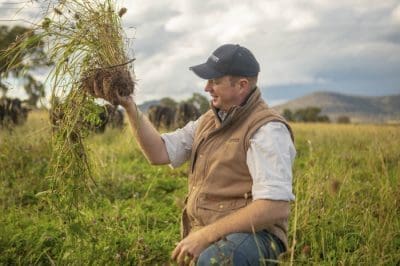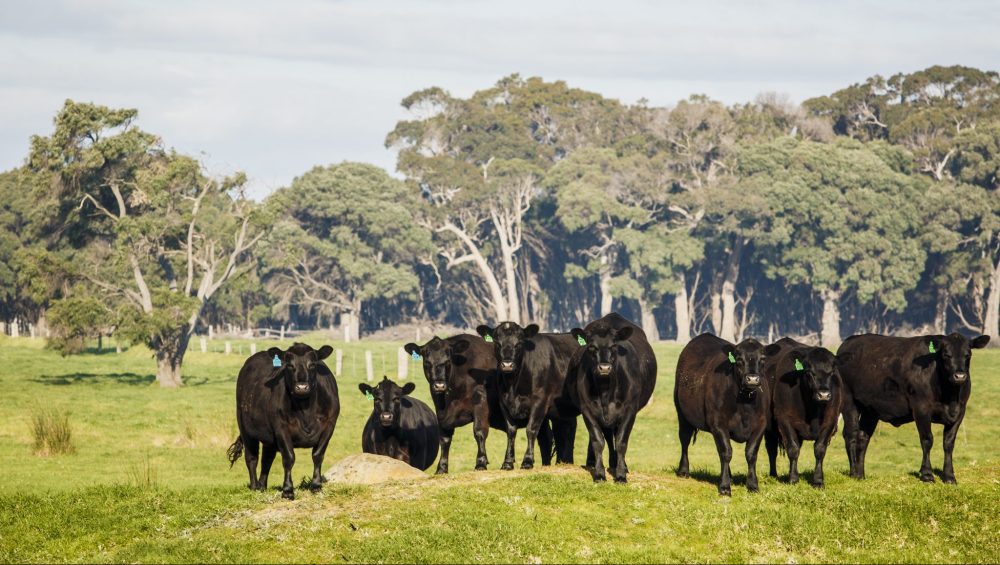THE soil carbon industry has been eagerly waiting for the Federal Government regulator’s verdict on a series of projects many are saying could deliver the burgeoning industry its biggest database ever.
At least two companies have projects going through the Clean Energy Regulator, with Carbon Link and Agriprove announcing positive soil testing results at a conference earlier this year.
Some of those projects have been with the regulator for longer than six months and according the Emissions Reduction Fund register they are yet to be awarded any Australian Carbon Credit Units.
The two companies have been taking different approaches to their submissions. Carbon Link has submitted results from 20,000ha of land and if its submission is fruitful, many are tipping it to dwarf a deal made with Microsoft in early 2019. Chair Dr Terry McCosker has been on the speaking circuit giving insights into the projects and earlier this year said one of its properties was sequestering 50kg of CO2 per 1kg of beef.
Agriprove on the other hand has only submitted one of its projects to see how it handles the CER process before submitting results from another 15 projects, which its managing director Matthew Warnken says will be worth about 50,000 ACCUs. For context, current ACCU price is $33.80, making 50,000 ACCUs worth $1.69 million.
Mr Warnken said the company submitted the first project in October, but its original hope of being issued ACCUs before Christmas was looking less likely.
“We have been told by the regulator that the current turnaround time is six months, so I think credit issuance by Christmas is a bit tight,” Mr Warnken said.
“What we have to remember is that we are operationalising the 2021 soil carbon methodology, so these projects are getting a lot of scrutiny. The regulator has been looking at the data and making sure everyone is confident the calculations are working, that will make it easier for subsequent projects coming through.”
Mr Warnken said issuing credits in the next year was important for the development of the soil carbon industry.
“We can only talk about the potential of soil carbon sinks for so long and if we are issued credits, we can move the conversation to what is working,” he said.
“Agriprove is really bullish about what is coming through our hands, in-terms of a growing portfolio.”
What is the hold up?
Much has been made about the potential of sequestering carbon in agricultural soils, especially after Microsoft made a big purchase of soil carbon credits from Australian properties in 2019, using a scheme from the United States. But Australia’s ERF has been quieter on the soil carbon front, with only one project earning ACCUs in seven years.
With some of the credits being at the regulator for more than six months, many have been asking what is holding the process up. A CER spokesperson said the public information available about projects was in its register – which shows the only soil carbon project to receive ACCUs was a Victorian property in 2019/20.
Some have speculated the current review of the ACCU framework, commissioned by the Federal Government and known as the Chubb-review, has been stalling the process. The spokesperson said the review was not a consideration in the ACCU issuing process.
“The CER welcomes the Government’s Independent Review of Australian Carbon Credit Units (ACCUs) and looks forward to engaging substantively with the review process as it progresses,” the spokesperson said.
“The CER’s careful assessment of crediting applications for all methods (including soil projects) conforms to the method and other legislative requirements. Timing of the ACCU review is not a consideration for the CER’s assessment process.”
Science of soil carbon
There has been some division in the scientific community about the drivers of building soil carbon. Some argue that weather is the main driver and industry’s proponents argue that management has more of a bearing.
The next round of projects from both Carbon Link and Agriprove are promising to provide some of the most comprehensive soil carbon data around, with many scientists keen to see what comes out of the CER.
Mr Warnken said there is a lot of outdated soil carbon data being used by the soil scientists.
“The method for our soil sample collection and analysis is the same method and approach used by researchers,” he said.
“This will help build on that evidence base of what is working, because the last big Australian research program was done in 2010. The study had something like 16,000 soil samples in it, but pretty soon soil carbon aggregators will have more soil samples than what was in the 2010 study.
“More importantly, it has been tracking some of the latest management practices from some of the most innovative farmers, so it is factoring in soil carbon with more up-to-date management.
“Looking at how many soil carbon credits a project will yield is really hard for current science because the last big scientific study is getting quite stale.”

Precision Pasutres’ Hamish Webb explains some of the ins and outs of soil carbon farming. Photo: Mike Terry
Will the floodgates open?
While this year has largely been a watch and wait as the CER assesses the projects, Precision Pastures interim CEO Hamish Webb believes the conditions are right for the “the floodgates to open” next year.
He said a combination of the government reviewing its ACCU framework with the Chubb-review, a bleak picture painted by the State of the Climate report and the government increasing its emissions targets was presenting a platform for the CER to issue more credits.
“There are two levers to pull; one is reducing emissions and the other is offsetting emissions,” Mr Webb said.
“Reducing emissions is difficult in the short-term and comes with all sorts of issues.”
Mr Webb said he believed the Chubb-review was going to underpin confidence the industry regulator.
“The government has everyone talking about climate change and a lot of soil carbon credits are currently going through the regulator,” he said.
“All indications are that the Chubb-review is going to re-enforce the integrity of the carbon market. There is potential for the CER to issue a number of credits that would make the Microsoft-Wilmot deal look like a tea party and the floodgates could really open.”


